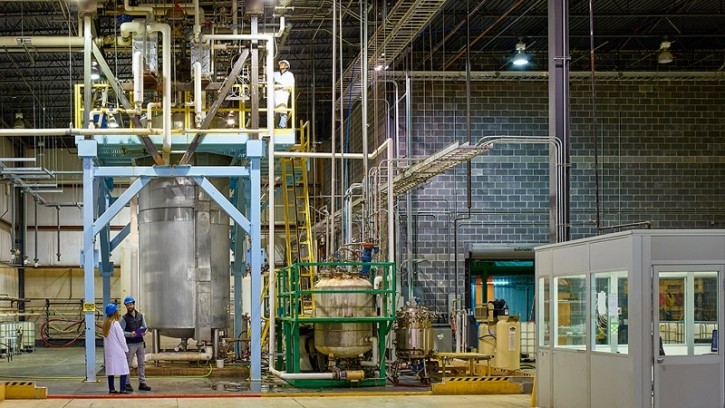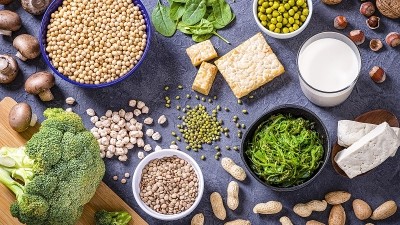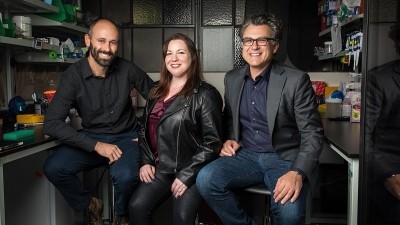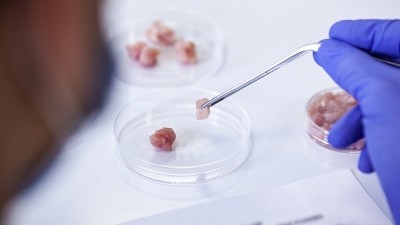Superbrewed Food partners with Döhler on postbiotic protein ingredient manufacturing

Superbrewed first approached Döhler roughly two and half years ago to distribute its postbiotic-cultured protein created with biomass fermentation ─ which creates a whole food as instead of an ingredient that requires little processing. The self-affirmed GRAS ingredient is neutral in taste, contains 80%+ protein, and has applications in animal-free dairy, snacks, sports nutrition, and alternative meats.
Döhler not only had the manufacturing capacity and know-how Superbrewed needed, but the companies were also aligned on the potential for the ingredient in the market, Tracy explained.
“We share a similar vision of what this protein ingredient can do commercially, and we share a vision, too, as to how practical it is to bring it to scale. Döhler has equipment; they have manufacturing assets. So, it's a wonderful partnership.”
Unlike some other alt-protein companies, Superbrewed partnered on manufacturing instead of building a facility from the ground up due to the financial resources it would take, Tracy said.
“We can reduce the amount of upfront capital cost ... by porting into Döhler’s facilities, and Döhler’s facilities are almost precisely built for our intended production process. We don't have to do much modification. So, our advantages [are] less cost upfront, and that's an expensive cost to companies like ours because usually you raise that money through equity, [and] ... nobody's going to debt [finance] these first-of-a-kind plants. We minimize that, and we radically accelerate our timeline to bring commercial products into the market.”
'The cart was put way too far in front of the horse'
Superbrewed's partnership comes at a time when the alt-protein market faces lower investments and concerns about its commercial viability, which also occured in the “cellulosic biofuel era back in the mid-2000s” when market hype pushed the category to grow too fast, Tracy noted.
“Much of the market interest [in alt proteins] was unfounded or untested, and then much of the manufacturer readiness level ─ the real true ability to manufacture these at a scale and at a cost that's realistic to go mainstream ... was not well determined. So, too much money went in too quickly at exorbitant valuations for many of these companies. I'm not saying that these are complete failures, but they should have taken more time to develop. The cart was put way too far in front of the horse, and so we're seeing the shake out of that.”
Consumers preference and adoption of alt protein and plant-based meat is another challenge facing the market, and companies need to “up their game” when it comes to developing innovative products, Tracy said. Instead of focusing on just alternative meats, Superbrewed is positioning the ingredient to be used in a range of applications that can meet a wide swath of consumer demands, he added.
Can the US ethanol industry pivot to food and biochemicals?
In addition to the CPG products to hit the market with Superbrewed’s protein this year, the company has a “pretty robust” pipeline and is exploring ways to commercialize other ingredients, Tracy said.
Through its biomass-fermentation process, Superbrewed creates butyric acid as a byproduct, a fatty acid that can be used in functional foods, flavors, and nutritional supplements, and the company is working to commercialize it in “the near future,” he added.
As the ethanol fuel industry faces challenges in the US, Tracy sees a larger market opportunity for biofuel companies to shift from fuel to making food products and biochemicals, and Superbrewed can show them the way.
“The ethanol industry in the US ... is in a very challenging position today. And that means that there is a huge amount of momentum ... [and] new opportunities to stop making animal feed and fuel, which are the bottoms of the commodity barrel, and start making food and biochemicals, which is top-shelf nutrition and much higher value in the petrochemical replacement world,” Tracy said. “There's 204 of these plants in the United States. We deliver that potential for them to climb that value ladder in the next two to three years.”























